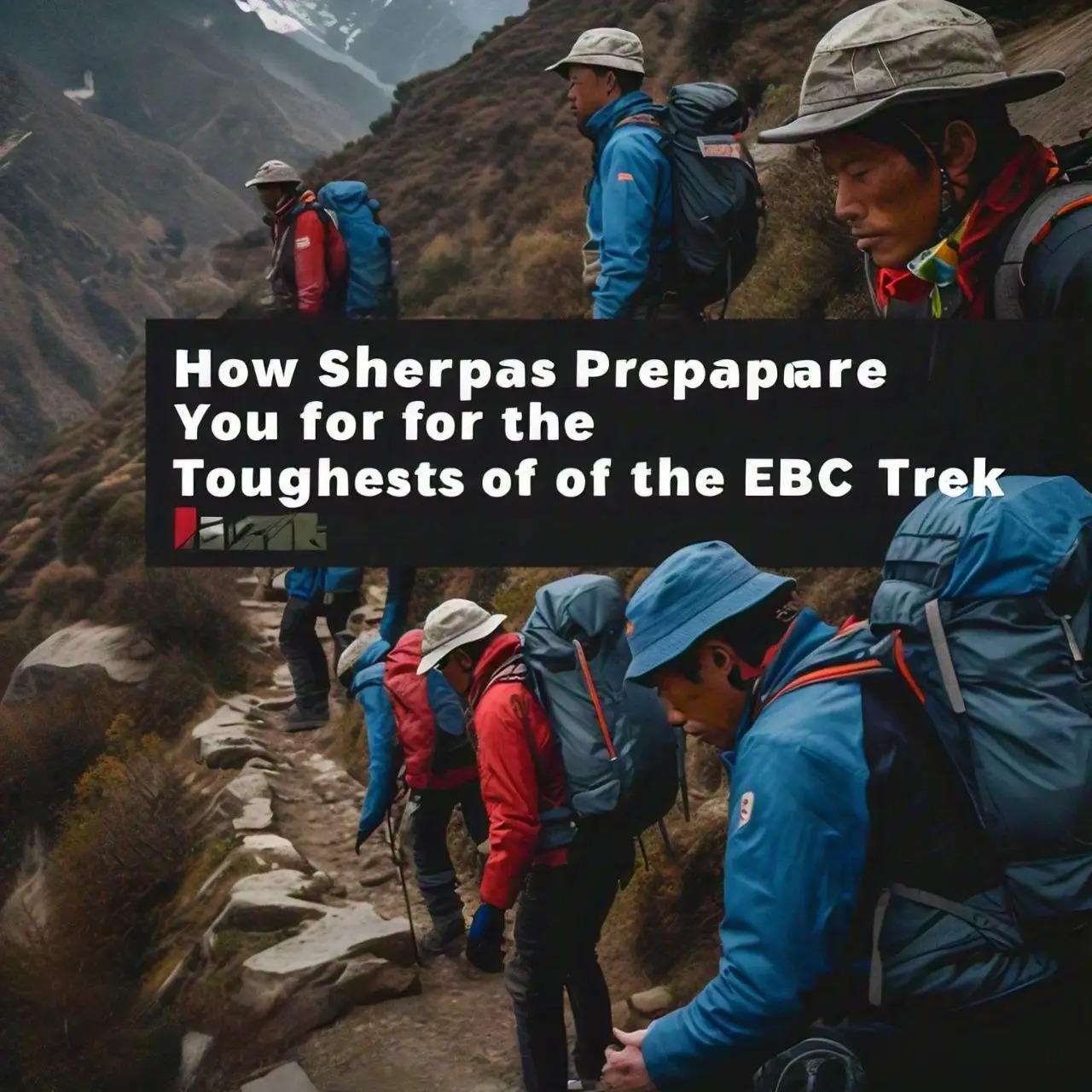In the end, Sherpas are what help contribute to trekkers through EBC providing a blend of skill, expertise and emotional strength toward the difficulty of portions within hike. It is a credit to their ability that they are able to guide trekkers through the unforgiving reality of high-altitude trekking while ensuring they remain healthy, safe and still managing some semblance of happiness. Whether it be through difficult sections, ensuring adequate acclimatization or simply being there for emotional support, everything that makes the EBC trek a life changing experience is heavily impacted by Sherpas.
Getting familiar with the geography: how to get around the Everest region
To get around the Everest region demands intimate knowledge of the terrain, and this is where Sherpas become invaluable. EBC trek goes through a varied landscape that includes thick forest, rock ridge, scenic alpine meadow and glaciers — all of which are hot spots with inherent goners. This ability to read the land is what guides Sherpas as they carry trekkers and climbers through steep ascents, narrow ridges and boulder-strewn paths.
Ability to identify the safest and shortest path — an experienced professional knows this terrain better than anyone, more so they will lead you past potential threats like avalanches, stone slides or even drops as well. The route from Lukla to Everest Base Camp meanders through villages, monasteries and suspension bridges as the trail can sometimes be deep mud or become slippery – especially in monsoon.
Trekkers are prepared for changeable conditions and they know about the challenges of landforms, such as high winds or reduced visibility which often occurs in higher altitudes very fast, by Sherpas. Because of the Sherpas’ experience in leading through such terrains, it provides a less arduous and overwhelming trek for those not accustomed to the mountainous surroundings. Part of the reason a trekker is able to navigate through the Short EBC trek without any trouble would be their ability to judge risks, determine in real-time which path forward looks best, and guidance through challenging terrain.
Preparing Your Mind: Getting More Confident to the Challenge
The Everest Base Camp trek is as much a mental challenge as it is physical. The mental work needed to battle the remoteness, strain on the body, and crazy thought of getting to base camp for the world’s tallest mountain is just as important (or more) than physical training for some trekkers. As they lead trekkers across these stunning yet strenuous trails, Sherpas are aware of the fact that trekking is more psychological than physical.
When the trek becomes tough, remember that it can be challenged by people who support you every moment; Sherpas boost confidence and are around for encouragement, and reassurance when your body starts complaining. They bring a smile — an act that elevates the spirit of trekkers who are tired, exasperated, or demotivated.
The Pace — Why You Need to Get Your Trekking Speed Right
With the high physical challenges of trekking to Everest Base Camp, along with its inhospitable demands associated with high-altitude trekking, it is ever so easy for trekkers to push themselves too hard so getting the right pace is crucial. Sherpas are experts in navigating the terrain and understanding the challenges of trekking helping trekkers maintain a steady pace throughout the journey.
The secret to a successful trek is mixing effort with rest so that trekkers do not’s fade out, too early. Thorwitz reports that Sherpas advise trekkers to rest for short periods of time–more often if you are out of shape, and warn against the danger of racing ahead; rather slow, steady advances is stress their way. They remind trekkers to pay attention to their bodies and take it slower if they are tired, reiterating that is a marathon not a sprint to Everest Base Camp.
Laying Down Trust: Sherpa and Trekker Whispers
This bond is based on trust, respect and shared experiences between a sherpa and a trekker. Trekkers entrust their lives and well-being to their Sherpa guides from the moment they step foot on the trail. It is developed with years of experience and deep understanding of the Everest region. As the trek progresses, trekkers learn to depend on the Sherpas not only for their navigation skills along the trail but also for their sage advice and calming presence.
As a result, those who trek through the Himalaya most often emerge with an unshakeable gratitude and admiration for the Sherpas, as they soon realize how specific expertise and steadfast support are what enables undertaking such an endeavor. The friendships built on the trail become epic moments of its own that last far longer than the hike. So too, this relationship between Sherpa and trekker truly helps to make the Everest Base Camp trek Cost a once in a lifetime journey.
Conclusion – Sherpas as your EBC support
Sherpas are the unsung heroes of any Everest Base Camp trek, they provide the physical, emotional and logistical support that makes this incredible accomplishment possible. They are the backbone of the trek with their extensive knowledge of the land, skills in high altitude management and commitment to safe trekking. In addition to their technical abilities, Sherpas bring something much more personal that makes the trek all the more valuable. They tell trekkers to push through tough sections and guide them carefully while traversing perilous routes poring in on confidence, pushing through fear.
Sherpa trekkers in turn share a relationship based on trust and respect, resulting in an ideal partnership built on cooperation, mutual objectives, and success. The relationship formed along the way seems to make a lasting impression on trekkers, many of whom are drawn back to Nepal to meet the Sherpas who made their dream of reaching Everest Base Camp possible. There is no doubt about it — every trek to Everest has Sherpas as its primary muscle, both literally and figuratively, enabling trekkers to tackle the challenges of the journey with strength, valor and resolve.

